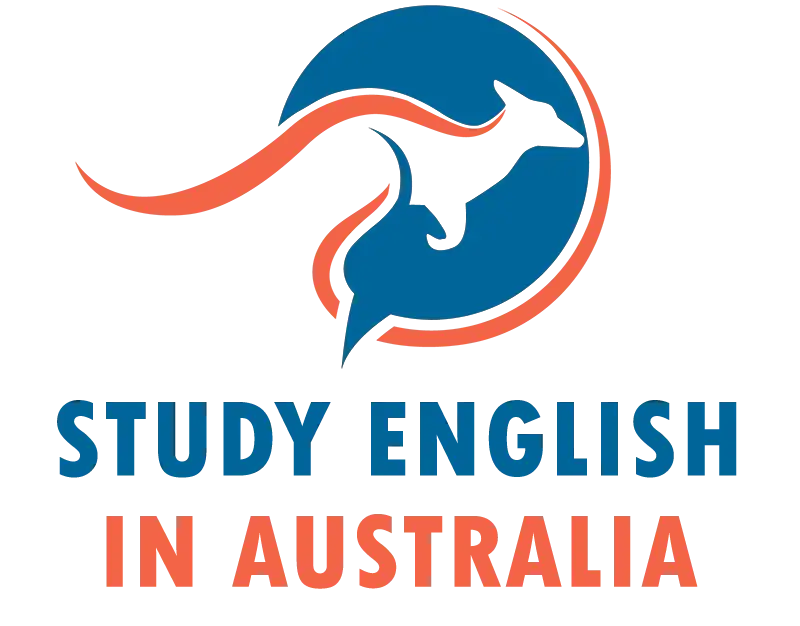Ingeniero de Producción o Planta (ANZSCO 233513)
Inmigrar a Australia es un sueño para muchas personas que buscan mejores oportunidades y un alto nivel de vida. Con su economía fuerte, cultura diversa y excelentes sistemas educativos y de salud, Australia ofrece un ambiente acogedor para los inmigrantes. Sin embargo, el proceso de inmigración puede ser complejo y requiere una planificación y preparación cuidadosas.
En esta guía completa, proporcionaremos información detallada sobre el proceso de inmigración a Australia. Desde la solicitud inicial hasta la aprobación final de la visa, cubriremos todos los pasos y requisitos necesarios para un viaje de inmigración exitoso. Ya sea que esté solicitando migración calificada, patrocinio familiar o innovación empresarial, esta guía le servirá como recurso de referencia.
Tipos de visas y elegibilidad
Hay varios tipos de visas disponibles para personas que buscan emigrar a Australia. Los criterios y requisitos de elegibilidad varían según la categoría de visa. Estos son algunos de los tipos de visa más comunes:
1. Visas de migración calificada
Las visas de migración calificada están diseñadas para personas que poseen las habilidades y calificaciones que se demandan en Australia. Estas visas se basan en puntos y requieren que los solicitantes cumplan con ciertos criterios para ser elegibles. Algunas de las visas de migración calificada incluyen:
2. Visas de Patrocinio Familiar
Si tiene un familiar que es ciudadano australiano o residente permanente, es posible que pueda patrocinarlo para una visa de patrocinio familiar. Estas visas le permiten vivir y trabajar en Australia y, eventualmente, solicitar la ciudadanía australiana. Algunas de las visas de patrocinio familiar incluyen:
3. Visas de Innovación e Inversión Empresarial
Si es propietario de un negocio o inversionista y busca establecer o expandir su negocio en Australia, puede ser elegible para una visa de inversión e innovación empresarial. Estas visas están diseñadas para atraer personas con experiencia empresarial exitosa y fondos de inversión sustanciales. Algunas de las visas de inversión e innovación empresarial incluyen:
Proceso de Migración Calificada
El proceso de migración calificada implica varios pasos y requisitos para garantizar que las personas posean las habilidades y calificaciones necesarias para contribuir a la economía australiana. A continuación se detallan algunos aspectos clave del proceso de migración calificada:
1. Sistema basado en puntos
Las visas de migración calificada utilizan un sistema basado en puntos para evaluar la elegibilidad de un individuo. Los puntos se otorgan en función de factores como la edad, el dominio del inglés, la educación, la experiencia laboral y otros criterios relevantes. La expresión de interés (EOI) de SkillSelect es el primer paso en el proceso de migración calificada, donde los solicitantes envían sus datos e indicansu interés en migrar a Australia.
2. Evaluación de habilidades
La evaluación de habilidades es una parte importante del proceso de migración calificada, ya que determina si las habilidades y calificaciones de un individuo cumplen con los requisitos de la ocupación nominada. Existen diferentes autoridades evaluadoras para diferentes ocupaciones y cada una tiene su propio conjunto de requisitos. Algunas ocupaciones también pueden tener programas piloto de evaluación de habilidades, que son programas temporales diseñados para evaluar habilidades para ocupaciones específicas con alta demanda.
3. Nominación de Estado/Territorio
La nominación de estado o territorio es un requisito adicional para ciertas visas de migración calificada. Cada estado o territorio tiene sus propios criterios de elegibilidad y requisitos para la nominación. La tabla de resumen de nominaciones de estado/territorio proporciona una descripción general completa de los requisitos de nominación para cada estado y territorio.
Proceso de Apadrinamiento Familiar
Las visas de patrocinio familiar permiten a las personas reunirse con miembros de su familia que sean ciudadanos australianos o residentes permanentes. El proceso implica cumplir requisitos específicos y proporcionar evidencia de una relación genuina. A continuación se detallan algunos aspectos clave del proceso de apadrinamiento familiar:
1. Visa de socio
La visa de pareja es para personas que tienen una relación genuina y continua con un ciudadano australiano o residente permanente. Los requisitos para los ciudadanos australianos y residentes permanentes pueden variar, y la prueba de una relación genuina es crucial en el proceso de solicitud.
2. Visa de padres
Las visas para padres están disponibles para padres de ciudadanos australianos o residentes permanentes que quieran vivir en Australia. Hay opciones contributivas y no contributivas, y el equilibrio de la prueba familiar se utiliza para determinar la elegibilidad.
3. Visa de niño
Las visas para niños son para hijos dependientes de ciudadanos australianos o residentes permanentes. Hay diferentes opciones disponibles, incluidas visas para hijos dependientes, familiares huérfanos e hijos adoptados. También se tienen en cuenta los requisitos de responsabilidad y custodia de los padres.
Proceso de Innovación e Inversión Empresarial
Las visas de inversión e innovación empresarial están diseñadas para atraer personas con experiencia empresarial exitosa y fondos de inversión sustanciales. A continuación se detallan algunos aspectos clave del proceso de inversión e innovación empresarial:
1. Visa de Innovación Empresarial
La visa de innovación empresarial es para personas que desean poseer y administrar un negocio nuevo o existente en Australia, o invertir en un estado o territorio australiano. Los criterios de elegibilidad incluyen propiedad empresarial, volumen de negocios y activos netos, entre otros. La prueba de puntos de innovación empresarial se utiliza para evaluar la elegibilidad de un individuo.
2. Visa de Inversión Empresarial
Las visas de inversión empresarial, como la Visa de Inversionista Significativo y la Visa de Inversor Premium, son para personas que desean realizar una inversión significativa en Australia. Los requisitos y obligaciones de inversión varían según el tipo de visa.
Requisitos específicos del estado/territorio
Cada estado y territorio de Australia tiene sus propios requisitos y criterios específicos de inmigración. Estos son los requisitos específicos para cada estado y territorio:
1. Territorio de la Capital Australiana (ACT)
El Territorio de la Capital Australiana (ACT) tiene su propio programa de nominaciones para la migración calificada. Los requisitos y criterios de elegibilidad se pueden encontrar en el sitio web oficial del gobierno de ACT.
2. Nueva Gales del Sur (NSW)
Nueva Gales del Sur (NSW) ofrece nominaciones para migración calificada a través de su programa Skilled Nominate Visa (Subclase 190). Los requisitos y criterios específicos están disponibles en el sitio web oficial del gobierno de Nueva Gales del Sur.
3. Territorio del Norte (NT)
El Territorio del Norte (NT) ofrece nominaciones para migración calificada a través de su programa de Visa Regional de Trabajo Calificado (Subclase 491). Los requisitos y criterios específicos se pueden encontrar en el sitio web oficial del gobierno del NT.
4. Queensland (Queensland)
Queensland (QLD) ofrece nominaciones para migración calificada a través de sus programas de Visa Nominada para Calificados (Subclase 190) y Visa Regional de Trabajo Calificado (Subclase 491). Los requisitos y criterios específicos están disponibles en el sitio web oficial del gobierno de QLD.
5. Australia del Sur (SA)
Australia del Sur (SA) ofrece nominaciones para migración calificada a través de sus programas de Visa Nominada para Calificados (Subclase 190) y Visa Regional de Trabajo Calificado (Subclase 491). Los requisitos y criterios específicos se pueden encontrar en el sitio web oficial del gobierno de Sudáfrica.
6. Tasmania (TAS)
Tasmania (TAS) ofrece nominaciones para migración calificada a través de sus programas de Visa Nominada para Calificados (Subclase 190) y Visa Regional de Trabajo Calificado (Subclase 491). Los requisitos y criterios específicos están disponibles en el gobierno oficial del TAS.sitio web.
7. Victoria (VIC)
Victoria (VIC) ofrece nominaciones para migración calificada a través de sus programas de Visa Nominada para Calificados (Subclase 190) y Visa Regional de Trabajo Calificado (Subclase 491). Los requisitos y criterios específicos se pueden encontrar en el sitio web oficial del gobierno de VIC.
8. Australia Occidental (WA)
Australia Occidental (WA) ofrece nominaciones para migración calificada a través de sus programas de Visa nominada para personas calificadas (Subclase 190) y Visa regional de trabajo calificado (Subclase 491). Los requisitos y criterios específicos están disponibles en el sitio web oficial del gobierno de WA.
Conclusión
En conclusión, emigrar a Australia requiere una comprensión profunda de las opciones de visa, los criterios de elegibilidad y el proceso de solicitud. Esta guía completa ha proporcionado información detallada sobre las distintas categorías de visas, incluida la migración calificada, el patrocinio familiar y la innovación empresarial. Siguiendo los pasos descritos en esta guía, los solicitantes pueden navegar el proceso de inmigración con confianza y aumentar sus posibilidades de obtener un resultado exitoso.
Tenga en cuenta que las políticas y regulaciones de inmigración están sujetas a cambios. Se recomienda consultar con un agente de migración registrado o los sitios web oficiales del gobierno para obtener la información más actualizada.
233513: Production or Plant Engineer
Current Demand / Future Demand
Skills Assessment PilotsN/AMinimum points Last invitation Round 25/05/2023 (Subclass 189):
No invitations were given
Possible Visa Options
| Visa Type | Eligibility | Caveats / Mandatory Assessment | Legislative Instrument | MLTSSL | STSOL | ROL |
|---|---|---|---|---|---|---|
| 189Skilled Independent | LIN 19/051 | |||||
| 190Skilled Nominated | LIN 19/051 | |||||
| 491Skilled Work Regional | LIN 19/051 | |||||
| 491FFamily Sponsored | LIN 19/051 | |||||
| 485Stream: Graduate Work | LIN 19/051 | |||||
| 482TSS: Medium & Short term | LIN 19/048 | |||||
| DAMALabour Agreement | ||||||
| 186ENS: TRT & DE | LIN 19/049 | |||||
| 187RSMS: TRT | LIN 19/047 | |||||
| 494SESR: Employer Sponsored | LIN 19/219 LIN 19/260 | |||||
| 407Training: Enhance Skills | LIN 19/050 |
State/Territory Eligibility Summary Table
- Occupation is IN the State/Territory Skilled Occupation List and MAY be eligible if you meet the specific State/Territory nomination requirements
- Occupation is IN the Skilled List (MLTSSL, STSOL or ROL list) and MAY be eligible if you meet the State/Territory nomination requirements
- Occupation MAY NOT be eligible
- Stream NOT applicable to the visa Subclass
- Migration Program currently CLOSED
State/Territory Eligibility Details
Australian Capital Territory
ACT Critical Skills List
233513: Production or Plant Engineer
| Subclass 190 | Subclass 491 | Nomination places available per month |
|---|---|---|
| 5 or Less |
Last list update: 16 May 2023
General Requirements
Candidates must register their interest in ACT nomination by completing a score-based Canberra Matrix
Candidates may be nominated under four streams:
- Canberra Residents
- Overseas Applicants
- Doctorate Streamlined nomination
- Significant economic benefit
Requirements for Canberra Residents
Candidates applying for Subclass 190 nomination must:
- Have an occupation on the ACT Critical Skills List; or be the primary holder of a 457/482 visa sponsored by an ACT employer for the last 6 months; or be the majority owner of an eligible ACT business claiming Matrix points in the Small Business Owner category.
- Have lived in Canberra for the last 6 months and continue until invitation.
- Have worked in Canberra for at least 26 weeks (overall hourly and/or earnings requirements apply).
- Have ‘Proficient’ or ‘Superior’ English (ANZSCO 351311 Chef, and ANZSCO skill level 3 to 5 are exempt).
Candidates applying for Subclass 491 nomination must:
- Have an occupation on the ACT Critical Skills List; or be the primary holder of a 457/482 visa sponsored by an ACT employer for the last 3 months; or be the majority owner of an eligible ACT business claiming Matrix points in the Small Business Owner category.
- Have lived in Canberra for the last 3 months and continue until invitation.
- Have worked in Canberra for at least 13 weeks (overall hourly and/or earnings requirements apply).
- Have ‘Competent’ English.
Requirements for Overseas Applicants
Candidates applying for Subclass 190 nomination must:
- Have an occupation on the ACT Critical Skills List.
- Have at least three years full time, post graduate relevant work experience in your nominated occupation in the last five years.
- Have researched the ACT labour market and be satisfied with being employable in Canberra.
- Have ‘Proficient’ or ‘Superior’ English (ANZSCO 351311 Chef, and ANZSCO skill level 3 to 5 are exempt).
- Be living overseas and have not lived in Australia for the last 12 months.
- Have access to sufficient settlement funds.
Candidates applying for Subclass 491 nomination must:
- Have an occupation on the ACT Critical Skills List.
- Have at least one year full time, post graduate relevant work experience in your nominated occupation in the last five years.
- Have researched the ACT labour market and be satisfied with being employable in Canberra.
- Have ‘Competent’ English.
- Be living overseas and have not lived in Australia for the last 12 months.
- Have access to sufficient settlement funds.
Doctorate Streamlined nomination
Candidates must:
- Have lived in Canberra for the last 12 months (interstate and overseas residents may be eligible if they completed their doctoral degree from an ACT within the last two years).
- Have completed a professional or research doctoral degree at an ACT university.
Significant economic benefit
- Invitation can ONLY be initiated by the ACT government.
New South Wales
Subclass 190 Basic Eligibility criteria
- Have an occupation on the Department’s relevant Skilled List (MLTSSL, STSOL or ROL).
- Candidates must be currently residing in NSW or Offshore and have continuously done so for a minimum of 6 months.
- Have submitted an EOI seeking Subclass 190 nomination for NSW only
NSW Target Sectors
To more effectively respond to changing skills shortages across the state, NSW is transitioning from the publication of an eligible ANZSCO skilled list to adopting a sector-focused approach.
The sectors identified as experiencing critical skills shortages in NSW include:
- Health
- Education
- Information and Communication Technology (ICT)
- Infrastructure
- Agriculture
Important: Although NSW prioritizes target sectors, high-ranking EOIs submitted in non-priority sectors may also be considered. However, it's important to understand that the chances of receiving an invitation are exceptionally low due to high demand and limited spots.
Subclass 491 Basic Eligibility criteria
Candidates may be nominated under two pathways:
- Pathway 1 – Apply directly to an RDA office (see participating regions below).
- Stream A - Established work history with a regional NSW-based employer
- Stream B - My skills are required in regional NSW
- Pathway 2 – Be invited by Investment NSW.
Requirements for Pathway 1 - Stream A
- Candidates must have an eligible occupation.
- Candidates must be currently living and working in a designated regional area of NSW and have continuously done so for the past 12 months.
- The qualifying employment must be in the nominated (or closely related) occupation, with the same employer, deemed skilled by NSW and paid a minimum of $53,900 (pro-rated if under 38 hours/week).
Requirements for Pathway 1 - Stream B
- Candidates must have an eligible occupation within an ANZSCO on the NSW Skills Lists (Pathway 1 - Stream B).
- Candidates must be currently residing in NSW or Offshore and have continuously done so for a minimum of 3 months.
Requirements for Pathway 2
- Candidates must have an eligible occupation within an ANZSCO on the NSW Skills Lists (Pathway 2)
- Candidates must be currently residing in NSW or Offshore and have continuously done so for a minimum of 3 months.
Participating regions for Pathway 1 are:
- RDA Central Coast
- RDA Central West
- RDA Far South Coast
- RDA Far West
- RDA Hunter
- RDA Illawarra
- RDA Mid North Coast
- RDA Murray
- RDA Northern Inland
- RDA Northern Rivers
- RDA Orana
- RDA Riverina
- RDA Southern Inland
- RDA Sydney
Northern Territory
General Requirements
Candidates may be nominated under three streams/pathways:
Requirements for NT Residents
Candidates must:
- Have been residing in the NT for at least 12 consecutive months, with no migrating dependants residing in another part of Australia.
- Demonstrate full-time employment in the NT in an eligible occupation (i.e., nominated occupation or related to it) for at least 6 consecutive months immediately before applying (the employment must be available for at least 12 months). If the occupation is not “an eligible occupation”, a candidate may exceptionally still be considered if employed in health, aged or disabled care, education (incl. childcare), and hospitality.
- Demonstrate that the position is based in the NT (serviced office spaced or hot desking generally not accepted) and the employer has been training for at least 12 months in the NT.
Requirements for Offshore Applicants
Candidates must:
- Have post-qualification work experience of at least 1 year in the nominated occupation (additional work experience may be required under the priority occupations stream).
- Demonstrate a genuine commitment to live and work in NT.
- Provide evidence of financial capacity.
- Meet the criteria relevant to one of the 3 streams:
- Have an occupation on the Northern Territory Offshore Migration Occupation List (NTOMOL).
- Meet any additional work experience required as specified on the NTOMOL. Please, see below:
- Have an eligible family member in the NT who is a usual resident and has lived in the NT for at least 12 months. This person must be an Australian citizen, a permanent resident, or an Eligible New Zealand citizen or hold an eligible visa (Subclass 491, 494, 489 or a bridging visa associated with an application for a Subclass 887 or 191 visa). The eligible relative must confirm their willingness to provide settlement support.
- Demonstrate genuine and sustained efforts to obtain employment from an NT employer.
- Have a job offer in the nominated occupation in an NT business that has been actively operating in the NT for at least 12 months.
Priority occupation stream
NT Offshore Migration Occupations List (NTOMOL)
233513: Production or Plant Engineer
| Subclass 190 | Subclass 491 | Comments |
|---|---|---|
NT Family stream
NT Job Offer stream
NT Graduates
Candidates must:
- Have completed two years of study in the NT.
- Have completed one or more qualifications at an NT-based institution in a single tertiary course or a set of nested tertiary courses.
- Demonstrate genuine and sustained efforts to obtain employment from an NT employer in the nominated occupation.
Candidates who:
- hold a Graduate (Subclass 485) visa that expires after 1 July 2024 or who are eligible to apply for a Graduate (Subclass 485) visa, are unlikely to be offered a nomination in this program year.
- are working in their nominated occupations or in critical sectors (healthcare, education and hospitality) would be prioritised.
Queensland
2023-24 Queensland Skilled Migration Program
233513: Production or Plant Engineer
| Type | Subclass 190 | Subclass 491 | Minimum post-qualification work experience requirement |
|---|---|---|---|
| Offshore candidates (QSOL list) | Four years | ||
| Living in QLD (Skilled List) |
Last list update (QSOL List): 19 September 2023
General Requirements
Candidates may be nominated under four streams:
- Skilled workers living in QLD
- Skilled workers living Offshore
- Graduates of a QLD University
- Small Business Owners in regional QLD
Requirements for 'Skilled workers living in QLD'
Candidates must:
- Have a points-test result of 75 or higher for Subclass 190 (except for Trades occupations, which require 70 or higher) or, 65 or higher for Subclass 491.
- Have an occupation on the Department’s relevant Skilled List (MLTSSL, STSOL or ROL).
- Have Competent English or higher (6.0 on IELTS / 50 on PTE).
- Have been living in QLD (regional for Subclass 491), undertaking full-time post-qualification employment (30 hrs/week) in the nominated occupation for ‘3 months immediately before EOI lodgement’ for Subclass 190 or, ‘at the time of your EOI lodgement’ for Subclass 491.
- Provide evidence of ongoing full-time employment in QLD for a further 12 months for Subclass 190 or, 6 months for Subclass 491 (virtual office is not accepted).
Requirements for 'Skilled workers living Offshore'
Candidates must:
- Have a points-test result of 75 or higher for Subclass 190 (except for Trades occupations, which require 70 or higher) or, 65 or higher for Subclass 491.
- Have an eligible occupation on the ‘Queensland Skilled Occupation List’ (QSOL).
- Have Competent English or higher (6.0 on IELTS / 50 on PTE).
- Provide evidence of the required years of post-study work experience as per the QSOL and be employed in the nominated occupation when invited.
Skilled workers living Offshore
Requirements for 'Graduates of a QLD university'
Candidates must:
- Have a points-test result of 75 or higher for Subclass 190 or, 65 or higher for Subclass 491.
- Have an occupation on the Department’s relevant Skilled List (MLTSSL, STSOL or ROL).
- Be living in Queensland (regional for Subclass 491).
- Have Competent English or higher (6.0 on IELTS / 50 PTE).
- Have completed 100% of their studies in Queensland and graduated in the last two years.
- Meet the additional criteria for their qualification level as indicated below.
PhD or Doctorate Graduates (190 and 491) must:
- Have had a positive decision on their thesis.
Master’s Graduates in STEM or Agriculture fields (190 and 491) must:
- Be employed full-time (30 hrs/week) in the nominated occupation (or ANZSCO Skill Level 1).
Master’s Graduates - not in STEM or Agriculture fields (190 and 491) must:
- Be employed full-time (30 hrs/week) in the nominated occupation (or ANZSCO Skill Level 1).
- Have a grade point average of 6.0 or higher for Subclass 190 or 5.0 for Subclass 491.
Bachelor’s Graduates (190 and 491) must:
- Be employed full-time (30 hrs/week) in the nominated occupation (or ANZSCO Skill Level 1).
- Have a grade point average of 6.0 or higher for Subclass 190 or 5.0 for Subclass 491.
Requirements for 'Small business owners in regional QLD'
Candidates must:
- Have an occupation on the Department’s relevant Skilled List (MLTSSL, STSOL or ROL).
- Have full-time work rights and not currently be studying.
- Be living in regional Queensland.
- Be working for the business full-time (30 hrs/week)
- Have 100% ownership of the business.
- Own and operate a business in regional Queensland.
- Meet the criteria for Pathway 1 or Pathway 2 as indicated below.
Pathway 1
- Have purchased an existing business for a minimum of $100,000.
- The business must be a pre-existing business (operating for a minimum of 2 years) trading for a minimum of six months prior to lodging an Expression of Interest (EOI).
- The business must employ at least one Australian resident (20 hrs/week) or two employees working 10 hrs/week.
Pathway 2
- Have started a business and have continuously run that business for a minimum of two years. Must be generating a profit and have a turnover of $200,000 in the 12 months prior to application.
Small Business Owners in regional QLD
South Australia
2023-24 South Australia's Skilled Occupation List
233513: Production or Plant Engineer
| Stream | Applying From | Subclass 190 | Subclass 491 | Minimum Points |
|---|---|---|---|---|
| Graduates | South Australia | 65 | ||
| Working in South Australia | South Australia | 65 | ||
| Highly Skilled & Talented | Any Location | 65 | ||
| Offshore | Offshore | 65 |
Last list update: 29 September 2023
For further details access directly the South Australia's Skilled Occupation List.
General Requirements
To be selected to apply for State nomination, most candidates must complete and submit a Registration of Interest (ROI) for South Australia via their Migration portal.
Candidates may be nominated under four streams:
Requirements for 'South Australian Graduates'
Candidates must:
- Have an occupation under the Graduate stream on South Australia’s Skilled Occupation list.
- Currently live and work in South Australia.
- Have at least Competent English.
- Have completed their qualification at a South Australian education. The course must be CRICOS registered with a minimum of 46 CRICOS weeks and meet the minimum qualification level listed for the occupation on South Australia’s Skilled Occupation list. At least 50% of the qualification must have been completed in SA, and the candidate must have resided in the State for at least 1 year during their studies.
- Have been residing in South Australia for at least the last 12 months.
- Have been working for the last 6 months and be currently employed (at least 30 hr/week). Employment must be related to the nominated occupation.
Requirements for 'Working in South Australia'
Candidates must:
- Have an occupation under the Working in SA stream on South Australia’s Skilled Occupation list.
- Currently live and work in South Australia.
- Have at least Competent English.
- Have been residing in South Australia for at least the last 12 months.
- Have been working for the last 6 months and be currently employed (at least 30 hr/week). Employment must be related to the nominated occupation.
Requirements for 'Highly Skilled and Talented'
Candidates must:
- Currently live and work in South Australia, interstate or overseas.
- Have at least Competent English.
- Meet employment requirements if working or have been offered a position in South Australia. Employer requirements include an existing business of at least 12 months, located and operating in SA for the past 12 months and with an annual turnover of at least $4 million unless an exception applies.
- Meet additional requirements if:
- Candidate with Hi-Tech or Digital industry experience, including at least 2 years of experience in one of South Australia’s critical technology professions.
- Candidate with Defence or Space industry experience, including having already commenced employment in a relevant organisation and currently working full-time in South Australia. Overseas candidates must demonstrate relevant experience and intend to relocate to South Australia.
Requirements for 'Offshore'
Candidates must:
- Currently residing offshore.
Tasmania
233513: Production or Plant Engineer
| Occupation Lists | Eligibility | Notes & caveats |
|---|---|---|
| Critical Roles List | ||
| Tasmanian Onshore Skilled Occupation List (TOSOL) | ||
| Overseas Skilled Occupation Profiles (OSOP) |
Lists
- Critical Roles List: An occupation included in the 'Critical Roles List' will be prioritised in the Migration Tasmania Gateway.
- Tasmanian Onshore Skilled Occupation List (TOSOL): An occupation included in the TOSOL is eligible for subclass 190 nomination after 6 months employment in a closely related role. Occupations that are not on the TOSOL are eligible for subclass 190 nomination in the 'Tasmanian Skilled Employment' pathway after 15 months of related employment.
- Overseas Skilled Occupation Profiles (OSOP): An occupation included in the OSOP list is eligible for the 'Overseas Applicant (OSOP) – Invitation Only' pathway (subclass 491 only).
Pathway Eligibility
233513: Production or Plant Engineer
| Pathway | Subclass 190 | Subclass 491 |
|---|---|---|
| Tasmanian Skilled Employment | ||
| Tasmanian Skilled Graduate | ||
| Tasmanian Established Resident | ||
| Tasmanian Business Operator | ||
| Overseas Applicant (Job Offer) | ||
| Overseas Applicant (OSOP) – Invitation Only |
- Occupation is IN the state occupation list and MAY be eligible if you meet the specific state nomination requirements
- Occupation is IN the Skilled List and MAY be eligible if you meet the state nomination requirements
- Occupation MAY NOT be eligible
- Stream NOT applicable to the visa Subclass
Victoria
Victoria’s 2023-24 Skilled Visa Nomination Program
To be selected to apply for Victorian skilled visa nomination, candidates must complete and submit a Registration of Interest (ROI) for Victorian State Visa Nomination.
All occupations included in the Skilled List(MLTSSL, STSOL or ROL list) are eligible for nomination if the candidate meets the Victoria nomination criteria.
The following occupation groups are prioritised:
- Health
- Social services
- Information Communication Technology (ICT)
- Early childhood, primary, secondary, and special education teachers
- Advanced manufacturing
- Infrastructure
- Renewable energy
- Hospitality and tourism (491 visa only)
General Requirements for 'Skilled Nominated visa (subclass 190)'
Candidates applying for Subclass 190 nomination must:
- Have an occupation on the Skilled List (MLTSSL, STSOL or ROL list).
- Have had their Registration of Interest (ROI) selected.
- If onshore, be living in Victoria at the time of nomination.
- If onshore and claiming earnings from skilled employment in the ROI, the employer must be physically located in Victoria.
- Be committed to living in Victoria.
General Requirements for 'Skilled Work Regional (Provisional) visa (subclass 491)'
Onshore Candidates must:
- Have an occupation on the Skilled List (MLTSSL, STSOL or ROL list).
- Have had their Registration of Interest (ROI) selected.
- Be living and working in skilled employment in regional Victoria at the time of nomination. Candidates who are not working, or working in non-skilled employment, are not eligible to apply for nomination.
- Be committed to living in regional Victoria.
Offshore Candidates must:
- Have an occupation on the Skilled List (MLTSSL, STSOL or ROL list). Offshore candidates for 491 visas with skills in healthcare, social services and education will be prioritised.
- Have had their Registration of Interest (ROI) selected.
- Be committed to living in regional Victoria.
Western Australia
Western Australia occupation lists (WASMOL Schedule 1 & 2, and Graduate)
233513: Production or Plant Engineer
| Stream Type | Status | Subclass 190 | Subclass 491 | Minimum Points | Priority Occupation | Comments |
|---|---|---|---|---|---|---|
| General - WASMOL Schedule 2 | Available | 65 | Applicants who have a nominated occupation may be eligible for Western Australian State nomination if they can also meet the relevant stream requirements. | |||
| Graduate stream | Available | 65 | Applicants who have a nominated occupation may be eligible for Western Australian State nomination if they can also meet the relevant stream requirements. |
Last list update: 25 October 2023
General Requirements
Candidates may be nominated under two streams:
Applicants for the General stream must satisfy Schedule 1 or Schedule 2 criteria, depending on their occupation.
Schedule 1 criteria, candidates must have:
- An occupation on the WASMOL – Schedule 1 (Health & Medical Occupations).
- Competent English.
- At least one year of relevant Australian or overseas work experience.
- At least 6-months full-time contract of employment in Western Australia (only applicable for Subclass 190 visa applicants, and except for those invited through a WA building and construction industry sector occupation).
Schedule 2 criteria, candidates must have:
- An occupation on the WASMOL – Schedule 2.
- Competent English.
- At least 6-months full-time contract of employment in Western Australia (only applicable for Subclass 190 visa applicants, and except for those invited through a WA building and construction industry sector occupation).
WA Graduates must have:
- An occupation on the GOL.
- Studied at an accredited Western Australian educational institution, full-time and face-to-face, for at least two years.
- Completed a Cert. III or higher qualification in a Western Australian university, higher education provider, TAFE, registered training provider or English language provider.
- Competent English.
Migration Program Planning Levels 2023-24
State & Territory Visa Allocations 2023-24State / Territory Nominated Subclass 190 Work Regional Subclass 491 Business Innovation & Investment Program
(BIIP) ACT 600 600 0 NSW 2,650 1,500 0 NT 250 400 0 QLD 900 650 0 SA 1,100 1,200 0 TAS 600 600 0 VIC 2,700 600 0 WA 1,500 850 0 TOTAL 10,300 6,400 0
Skill streamVisa Category Allocations 2022-23 Allocations 2023-24 Employer Sponsored 35,000 36,825 Skilled Independent 32,100 30,375 Regional 34,000 32,300 State/Territory Nominated 31,000 30,400 Business Innovation & Investment 5,000 1,900 Global Talent (Independent) 5,000 5,000 Distinguished Talent 300 300 Total Skill stream 142,400 137,100
Family streamVisa Category Allocations 2022-23 Allocations 2023-24 Partner 40,500 40,500 Parent 8,500 8,500 Child 3,000 3,000 Other Family 500 500 Total Family stream 52,500 52,500 Special Eligibility 100 400 TOTAL Migration Program 195,000 190,000
| State / Territory | Nominated Subclass 190 | Work Regional Subclass 491 | Business Innovation & Investment Program (BIIP) |
|---|---|---|---|
| ACT | 600 | 600 | 0 |
| NSW | 2,650 | 1,500 | 0 |
| NT | 250 | 400 | 0 |
| QLD | 900 | 650 | 0 |
| SA | 1,100 | 1,200 | 0 |
| TAS | 600 | 600 | 0 |
| VIC | 2,700 | 600 | 0 |
| WA | 1,500 | 850 | 0 |
| TOTAL | 10,300 | 6,400 | 0 |
| Visa Category | Allocations 2022-23 | Allocations 2023-24 |
|---|---|---|
| Employer Sponsored | 35,000 | 36,825 |
| Skilled Independent | 32,100 | 30,375 |
| Regional | 34,000 | 32,300 |
| State/Territory Nominated | 31,000 | 30,400 |
| Business Innovation & Investment | 5,000 | 1,900 |
| Global Talent (Independent) | 5,000 | 5,000 |
| Distinguished Talent | 300 | 300 |
| Total Skill stream | 142,400 | 137,100 |
Family streamVisa Category Allocations 2022-23 Allocations 2023-24 Partner 40,500 40,500 Parent 8,500 8,500 Child 3,000 3,000 Other Family 500 500 Total Family stream 52,500 52,500 Special Eligibility 100 400 TOTAL Migration Program 195,000 190,000
| Visa Category | Allocations 2022-23 | Allocations 2023-24 |
|---|---|---|
| Partner | 40,500 | 40,500 |
| Parent | 8,500 | 8,500 |
| Child | 3,000 | 3,000 |
| Other Family | 500 | 500 |
| Total Family stream | 52,500 | 52,500 |
| Special Eligibility | 100 | 400 |
| TOTAL Migration Program | 195,000 | 190,000 |
ANZSCO version 1.3, cat. no. 1220.0
Sub-Major Group: 23 - Design, Engineering, Science and Transport Professionals
Minor Group: 233 - Engineering Professionals
Unit Group: 2335 - Industrial, Mechanical and Production Engineers
Description
Plans, directs and coordinates the design, construction, modification, continued performance and maintenance of equipment and machines in industrial plants, and the management and planning of manufacturing activities. Registration or licensing may be required.
Alternative Titles
There are no Alternative Titles for this occupation
Specialisations
- Automation and Control Engineer
Alternative titles are any commonly used alternative title (or titles) for the occupation. These alternative titles have the same meaning as the principal title but may be less commonly used.
Specialisation titles are any commonly used titles which refer to a subset of jobs belonging to the occupation designated in the principal title. These jobs involve the performance of specialised tasks rather than the broader range of tasks usually performed in the occupation.
2023 Skills Priority List
The Skills Priority List (SPL) provides a detailed view of occupations in shortage in Australian and by each state and territory. The SPL is released annually by Jobs and Skills Australia
Occupation Ratings: S Shortage; NS No Shortage; R Regional Shortage
National Future Demand: Below economy average; At economy average; Above economy average
233513: Production or Plant Engineer
| National Future Demand | National | ACT | NSW | NT | QLD | SA | TAS | VIC | WA |
|---|---|---|---|---|---|---|---|---|---|
| S | S | S | S | S | S | S | S | S |
What is the Skills Priority List (SPL)?
Jobs and Skills Australia – Skills Shortages Analysis
Unit Group 2335: Industrial, Mechanical and Production Engineers
Description
Design, organise and oversee the construction, operation and maintenance of mechanical and process plant and installations, establish programs for the coordination of manufacturing activities, and ensure usage of resources is cost effective.
Indicative Skill Level 1
Most occupations in this unit group have a level of skill commensurate with a bachelor degree or higher qualification. In some instances relevant experience and/or on-the-job training may be required in addition to the formal qualification (ANZSCO Skill Level 1).
Registration or licensing may be required.
Tasks
- Studying functional statements, organisational charts and project information to determine functions and responsibilities of workers and work units and to identify areas of duplication
- Establishing work measurement programs and analysing work samples to develop standards for labour utilisation
- Analysing workforce utilisation, facility layout, operational data and production schedules and costs to determine optimum worker and equipment efficiencies
- Designing mechanical equipment, machines, components, products for manufacture, and plant and systems for construction
- Developing specifications for manufacture, and determining materials, equipment, piping, material flows, capacities and layout of plant and systems
- Organising and managing project labour and the delivery of materials, plant and equipment
- Establishing standards and policies for installation, modification, quality control, testing, inspection and maintenance according to engineering principles and safety regulations
- Inspecting plant to ensure optimum performance is maintained
- Directing the maintenance of plant buildings and equipment, and coordinating the requirements for new designs, surveys and maintenance schedules
Average Salary 2021
Unit Group 2335: Industrial, Mechanical and Production Engineers
| Type | Weekly Earnings | Annual Salary | Average Age |
|---|---|---|---|
| Males | $ 2,588.50 | $ 134,602 | 44.9 |
| Females | $ 2,135.50 | $ 111,046 | 37 |
| Persons | $ 2,561.40 | $ 133,193 | 44.4 |
Australian Bureau of Statistics, 2013, ANZSCO - Australian and New Zealand Standard Classification of Occupations, 2013, Version 1.3, cat. no. 1220.0, https://www.abs.gov.au/ausstats/abs@.nsf/mf/1220.0
SkillSelect EOI Backlog
EOI Data Current to 30/09/2023
Total Count EOIs @ 30/09/2023
| Visa Type | Submitted | Invited | Lodged |
|---|---|---|---|
| 188 Business Innovation | 3,243 | 2,636 | |
| 189 Skilled Independent | 123,922 | 260 | 21,018 |
| 190 State/Territory Nominated | 228,592 | 779 | 36,154 |
| 491 State/Territory Nominated (Regional) | 188,646 | 583 | 22,859 |
| 491 Family Sponsored | 4,536 | <20 | 704 |
EOIs by Occupation & Visa Type
233513: Production or Plant Engineer
189 Skilled Independent
190 State/Territory Nominated
491 State/Territory Nominated
491 Family Sponsored
Notes
- Counts of EOIs with less than 65 points are not shown.
- Counts which are less than 20 are shown as '<20'.
EOI Status
SUBMITTED an EOI that meets all requirements for all selected visa subclasses and has all fields completed can be submitted. Once submitted, points are attributed to the EOI based on the information provided. Submitted EOIs are eligible for selection in an invitation round.
INVITED an invitation to apply for a visa has been issued.
LODGED a visa application has been lodged using an invitation to apply for a visa.
This data draws from the SkillSelect EOI Dashboard and is thus as accurate as the information on that source. This information is intended to provide a general overview of the SkillSelect dataset in a specific point in time, rather than a real-time database.
Anzscosearch will provide this information as long as it remains available on the SkillSelect website.
DAMA - Designated Area Migration Agreement
| Concessions | ||||||
| DAMA List | English | TSMIT | Age | PR Pathway | Skills & Experience | |
|---|---|---|---|---|---|---|
| QLD | The TNQ (Townsville) DAMA | up to 55 | Group 1 | |||
| SA | The South Australian Regional Workforce DAMA | |||||
| WA | The Goldfields DAMA | up to 55 | ||||
| WA | South West DAMA (Shire of Dardanup) | up to 55 |
Notes
- English, TSMIT (Temporary Skilled Migration Income Threshold), Age, PR Pathway and Skills & Experience are concessions that may be available for this occupation under the relevant DAMA.
- Skills & Experience requirements vary depending on whether the occupation is on a relevant skilled list as well as its skill level. Check the information available in the corresponding DAR website.
- The table above literally reproduces the information published by the different Designated Area Representatives (DARs) in their DAMA Occupation lists. Concessions available (e.g PR pathway for applicants under NT DAMA) which have not been included by the DARs in relevant DAMA lists have also not been included above. Users should carefully review all information available in the DAR websites in relation to concessions.











